「詩人とは虚構(よそお)う人だ
その虚構いのあまりに完璧であるため
現実に感じる苦痛まで
苦痛であるかのごとく虚構う」
Fernando Pessoa
フェルナンド・ペソア
- MAR PORTUGUEZ
ポルトガルの海
それは意味があることだったのか。
なにごとにしろ意味はあるのだ
たましいが小さなものでないのなら。
ボジャドールの岬を越えようとのぞむものは
悲しみも乗り越えなければならない。
ポルトガルを洋行しながら交流している
*「七海洋」氏に捧ぐ
* http://s-enterprise.com/?p=6108
塩からい海よ、お前の塩のなんと多くが
ポルトガルの涙であることか
われわれがお前をわたるために、なんと多くの母親が涙をながし
なんと多くの子がむなしい祈りをささげたことか
なんと多くの花嫁が結婚しないままになったことか
お前をわれわれのものにするために。海よ。
それは意味があることだったのか。なにごとにしろ意味はあるのだ
たましいが小さなものでないのなら。
☆ボジャドールの岬を越えようとのぞむものは
悲しみも乗り越えなければならない。
神は海に危険と深淵をあたえた
しかし神が空を映したのも海にだ。
English version
Portuguese Sea
Oh salty sea, so much of your salt
Is tears of Portugal!
Because we crossed you, so many mothers wept,
So many sons prayed in vain!
So many brides remained unmarried
That you might be ours, oh sea!
Was it worthwhile? All is worthwhile
When the spirit is not small.
He who wants to go beyond the Cape
Has to go beyond pain.
God to the sea peril and abyss has given
But it was in it that He
An introduction to the poem: Mar Português (after which the second part of Mensagem is named) is the capital short poem of Portuguese Literature and also Pessoa's best known poem in his homeland. It sums up the cost of conquering the seas in terms of human suffering and asks "Was it worthwhile?" immediately replying with two resounding sentences "All is worthwhile when the spirit is not small" and "He who wants to go beyond the Cape has to go beyond pain". The poem then concludes in a grand manner with the statement that God created the sea dangerous but it was in it that He chose to mirror the sky that symbolizes heaven!
https://web.archive.org/web/20101231222649/http://www.historia.com.pt:80/Mensagem/MarPortugues/marportuguez.htm#ingles
MAR PORTUGUÊS(ポルトガルの海)
原詩ポルトガル語
O mar salgado, quanto do teu sal
São lágrimas de Portugal!
Por te cruzarmos, quantas mães choraram,
Quantos filhos em vão rezaram!
Quantas noivas ficaram por casar
Para que fosses nosso, ó mar!
Valeu a pena? Tudo vale a pena
Se a alma não é pequena.
Quem quer passar além do Bojador
Tem que passar além da dor.
Deus ao mar o perigo e o abismo deu,
Mas nele é que espelhou o céu.
追加情報
http://www.oceandictionary.jp/scapes1/scape_by_randam/randam14/select1453.html より転載
1415年、ポルトガルのエンリケ航海王子は、アフリカ北西岸のボジャドール岬到達をめざして、自国船隊を派遣する。
1418年、エンリケ航海王子は、イベリア半島のポルトガル領南西端のサグレス岬に、航海学校・天文台などを設立し、 地理・航海・造船・天地誌学などに関する研究を行ない、またそれらを学ばせ、航海者を育成し、アジアへの 海上ルート開拓を期して、本格的にアフリカ西岸沿いに南下させるべく、探検航海者を派遣し始める。 歴史上「大航海時代《と位置づけられる初期の頃のことである。かくして、ポルトガルはアフリカ最南端迂回と インド航路開拓、それによるアジアへの国勢伸張の道を切り開いた。
ポルトガル航海者ジル・エアンネス(Gil Eanes)は、エンリケ王子の命により、ナン岬を越えて南下すべく航海を試み、 一度は失敗していた。彼は、1432年に再び出帆し、ナン岬を越え、1434年にはそのはるか南方のボハドール岬に到達することに 成功した。
[ポルトガル語]
Principal obstáculo ao avanço das navegaçãoes portuguesas para o Sul, o Cabo Bojador foi ultrapassado por Gil Eanes em 1434.
[英語]
Cape BOJADOR the principal obstacle in the path of the Portuguese navigators heading South was rounded by Gil Eanes in 1434.
☆ボジャドール岬はポルトガル人航海者たちが南方をめざし航路を進める上での第一の障害であったが、1434年 ジル・イアネスによって迂回された。
その虚構いのあまりに完璧であるため
現実に感じる苦痛まで
苦痛であるかのごとく虚構う」
Fernando Pessoa
フェルナンド・ペソア
- MAR PORTUGUEZ
ポルトガルの海
それは意味があることだったのか。
なにごとにしろ意味はあるのだ
たましいが小さなものでないのなら。
ボジャドールの岬を越えようとのぞむものは
悲しみも乗り越えなければならない。
ポルトガルを洋行しながら交流している
*「七海洋」氏に捧ぐ
* http://s-enterprise.com/?p=6108
塩からい海よ、お前の塩のなんと多くが
ポルトガルの涙であることか
われわれがお前をわたるために、なんと多くの母親が涙をながし
なんと多くの子がむなしい祈りをささげたことか
なんと多くの花嫁が結婚しないままになったことか
お前をわれわれのものにするために。海よ。
それは意味があることだったのか。なにごとにしろ意味はあるのだ
たましいが小さなものでないのなら。
☆ボジャドールの岬を越えようとのぞむものは
悲しみも乗り越えなければならない。
神は海に危険と深淵をあたえた
しかし神が空を映したのも海にだ。
English version
Portuguese Sea
Oh salty sea, so much of your salt
Is tears of Portugal!
Because we crossed you, so many mothers wept,
So many sons prayed in vain!
So many brides remained unmarried
That you might be ours, oh sea!
Was it worthwhile? All is worthwhile
When the spirit is not small.
He who wants to go beyond the Cape
Has to go beyond pain.
God to the sea peril and abyss has given
But it was in it that He
An introduction to the poem: Mar Português (after which the second part of Mensagem is named) is the capital short poem of Portuguese Literature and also Pessoa's best known poem in his homeland. It sums up the cost of conquering the seas in terms of human suffering and asks "Was it worthwhile?" immediately replying with two resounding sentences "All is worthwhile when the spirit is not small" and "He who wants to go beyond the Cape has to go beyond pain". The poem then concludes in a grand manner with the statement that God created the sea dangerous but it was in it that He chose to mirror the sky that symbolizes heaven!
https://web.archive.org/web/20101231222649/http://www.historia.com.pt:80/Mensagem/MarPortugues/marportuguez.htm#ingles
MAR PORTUGUÊS(ポルトガルの海)
原詩ポルトガル語
O mar salgado, quanto do teu sal
São lágrimas de Portugal!
Por te cruzarmos, quantas mães choraram,
Quantos filhos em vão rezaram!
Quantas noivas ficaram por casar
Para que fosses nosso, ó mar!
Valeu a pena? Tudo vale a pena
Se a alma não é pequena.
Quem quer passar além do Bojador
Tem que passar além da dor.
Deus ao mar o perigo e o abismo deu,
Mas nele é que espelhou o céu.
追加情報
http://www.oceandictionary.jp/scapes1/scape_by_randam/randam14/select1453.html より転載
1415年、ポルトガルのエンリケ航海王子は、アフリカ北西岸のボジャドール岬到達をめざして、自国船隊を派遣する。
1418年、エンリケ航海王子は、イベリア半島のポルトガル領南西端のサグレス岬に、航海学校・天文台などを設立し、 地理・航海・造船・天地誌学などに関する研究を行ない、またそれらを学ばせ、航海者を育成し、アジアへの 海上ルート開拓を期して、本格的にアフリカ西岸沿いに南下させるべく、探検航海者を派遣し始める。 歴史上「大航海時代《と位置づけられる初期の頃のことである。かくして、ポルトガルはアフリカ最南端迂回と インド航路開拓、それによるアジアへの国勢伸張の道を切り開いた。
ポルトガル航海者ジル・エアンネス(Gil Eanes)は、エンリケ王子の命により、ナン岬を越えて南下すべく航海を試み、 一度は失敗していた。彼は、1432年に再び出帆し、ナン岬を越え、1434年にはそのはるか南方のボハドール岬に到達することに 成功した。
[ポルトガル語]
Principal obstáculo ao avanço das navegaçãoes portuguesas para o Sul, o Cabo Bojador foi ultrapassado por Gil Eanes em 1434.
[英語]
Cape BOJADOR the principal obstacle in the path of the Portuguese navigators heading South was rounded by Gil Eanes in 1434.
☆ボジャドール岬はポルトガル人航海者たちが南方をめざし航路を進める上での第一の障害であったが、1434年 ジル・イアネスによって迂回された。











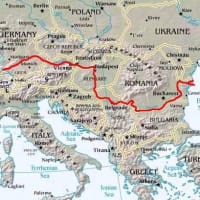
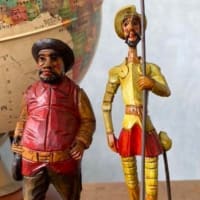
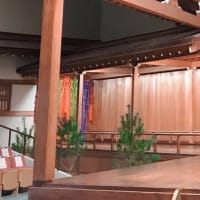
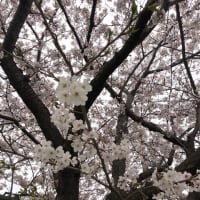


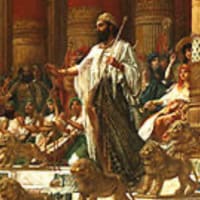
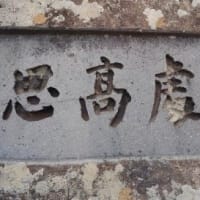

※コメント投稿者のブログIDはブログ作成者のみに通知されます